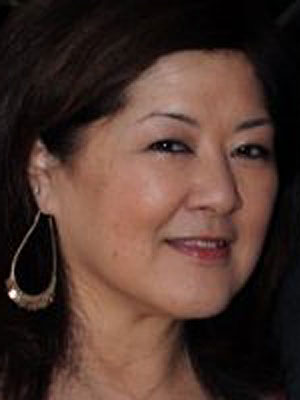
Elaine Tajima
Don’t Let Success Destroy your Culture
October 06, 2007
Case categories include: Human Resources Leadership
By Robert Sher
Boldly on the wall is their slogan – People Against Blah. As a creative agency, it's meant to signify their commitment to the fresh and the new for their clients. But CEO Elaine Tajima discovered, in an uncomfortable way, that blah can even creep into an incredibly creative organization like hers. She defended her organization from blah, even at its' peril, and emerged again in a no-blah and profitable world.
As a young agency Tajima had a growing account base of nice sized accounts. But one nice account was part of a huge organization with many business units, and the no-blah approach really worked. That nice piece of business grew and grew, and soon their requirements from several units dominated her business -- to the tune of 70%. Worrisome from a concentration perspective, yes. But far worse, it started to feel blah for Tajima's team.
Many executives start their own businesses so that they can control the culture in which they work. They had a few bosses that were inflexible or overly demanding. They saw needs within their own life for better work-life balance, or perhaps just wanted the freedom to pursue opportunities as they saw fit, without having to negotiate with the boss. So they start their own company, but then come the customers, and customers massively influence the culture of the young firm. A few irritating but small customers can affect a small team, and certainly one large customer can shift culture.
Ms. Tajima's client wasn't horrible. But the volume of work needed was huge, he tended to have short deadlines, and tended to want to have more creative options than normal. Combined, it exhausted the team at Tajima. Exhaustion and creativity are not the best of friends.
But the revenue from this account was driving the business, and was paying for the infrastructure needs of this growing firm. It was paying the salaries of most of the team, as well as the CEO. The account’s work was also bringing blah and a big dose of stress into her culture and distracting her and her team from aggressively attracting and serving new clients that could reduce the concentration risk the big client brought.
After 9 months of soul searching, Ms. Tajima decided that having a creative agency that felt oppressive and stressful was not acceptable. With notice, she resigned this part of the anchor account. She didn’t make the decision based on which part of the account was more profitable as much as which part of the account would allow her to structure her agency back to the way it had been before the most recent surge of growth had thrown the culture out of whack.
Tajima survived. A re-energized staff began bringing in new accounts again. Another division of the big account hired Tajima to so some different work where the fit between their needs and Tajima's culture was much better.
Revenue declined for a year after the shift but has now grown back—but with a more stable and creative structure behind it.
By shifting staff responsibilities, Ms. Tajima also re-energized her team which allowed everyone to focus more time on developing new opportunities.
Growing firms can get absorbed by big accounts. This is normal. But beware of trading the "soul" or culture of your company for the cash flow from the big customer. If you must, monitor the real organizational cost, and try and maintain the ability to walk away -- don't commit to fixed costs that require you to stay committed long term.
Too many businesses grow large, having no fun and making no money. What is the point of that? The right customer fits your company, and moves you toward your objectives. If your product or service is good, there are plenty of right customers. Keep searching for them and don't settle short.
Sometimes shrinking to a healthier position is required to begin healthier growth. The aggressive CEOs among us hate that, but it is true.
The no blah commitment is a great and inspiring way of reminding all of us that keeping our teams interested, excited and engaged in their work makes them more like owners than workers. The contribution to profit of such a team is typically much greater than having that one additional account that drains the culture.
Robert Sher is principal of CEO to CEO, specializing in assisting CEOs and business leaders as they navigate critical passages. He is the author of The Feel of the Deal; How I Built a Business through Acquisitions. He may be reached at Robert@ceotoceo.biz.
Takeaways:
1. Stay aware of your culture and how it is evolving over time.
2. Identify and take action against anything that is degrading your employees or the culture that you designed and want.
3. Sometimes you have to fire a customer to solve the problem.
Case and Company Facts:
Service: Established in 1996, Tajima Creative is a design and marketing studio that delivers innovative yet practical solutions for clients, community, and society. Based in Menlo Park, California, Tajima Creative also has an office in Los Angeles.
Number of employees -- 25
Sales: 11.6 million in revenue in 2006
Typical Customer: Companies of all sizes from retail, financial services, technology, sports/entertainment, real estate development, CSR, and other industries.
Publishable Physical Address: 1700 El Camino Real, Menlo Park, CA 94025
Date Written: October 2007
General E-mail: info@tajimacreative.com
Web address: http://www.tajimacreative.com
Phone number: 650-329-9316
About
The Alliance of Chief Executives is an active community of business leaders that focuses on deep strategic exchanges, challenging existing assumptions and generating fresh ideas.
Contact Us
Alliance of Chief Executives, LLC
2175 N. California Blvd.,
Suite 605
Walnut Creek, CA 94596
- 925-942-2400 Office
- 925-956-4424 Fax
- Email: info@allianceofCEOs.com
Newsletter
Subscribe to our newsletter and stay up to date with the latest Alliance news!












































